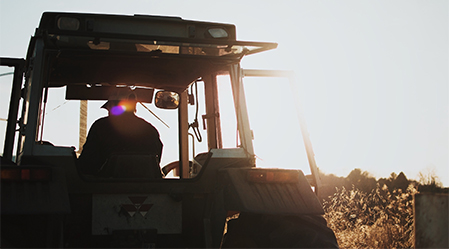Other successful Employees
Mary has spent her career learning, teaching and trying to emulate the practices of indigenous soil preservation. “My degrees were all in Agricultural pathology and soil microbiology and my PhD was in plant pathology from Monash University,” she said.
Mary is an Honorary Senior fellow at the University of Melbourne, and from 1980 has operated Agpath, her own consulting company which looks at removing chemicals from the environment and improving soil health for farmers.
I'm the director and principal scientist of Agpath and we work nationally and internationally. I have two scientists who work with me.”
“We look at nutrient density which is damaged by the overuse of chemicals in the environment, we look at improving soil quality so the nutrition of plants and animals is much higher than in a chemical system,” Mary said.
Mary has worked in the area of mushroom taxonomy and for the wine industry detecting disease. Mary and her husband Alan, have a biological farm where they run black angus, and they run trials on their property for companies.
“We do an enormous amount of soil sampling for farmers who are wanting to understand the biology of their soil and then use non-chemical methods of improving their agricultural systems,” she said.
“Consumers are starting to want better produce, farmers are wanting a more sustainable way of agriculture, and I just find that incredibly exciting,” she said.
Agpath works with growers in Horticulture, Viticulture and Agriculture identifying phytopathogens and offering non-chemical management options. Mary has had Agricultural students from around Australia and the world complete internships at Agpath. She also has a laboratory where high school students can work for industry placements.
Mary loves her job, and even after 40 years, she is still learning every day and finds her role highly rewarding. Her aim is to transfer her knowledge to younger people in the industry.
“At my age, I can help the younger generation gain some of the knowledge,” she said.
“I've been privileged in having parents who cared about the environment and had the opportunity to be able to make some small mark. My students are all around the world and they're all doing good things in non-chemical agriculture. I've had a really privileged career.”
Mary’s tips for other who are interested in perusing a similar career:
- You need to have compassion for the vitality of the planet and a passion for caring for soil.
- Get work experience with people who are looking at organic or biodynamic systems of agriculture and learn on the job.





